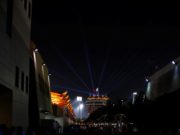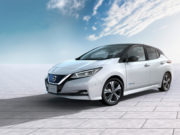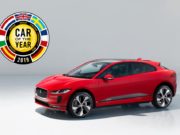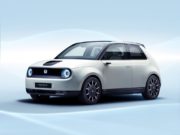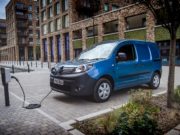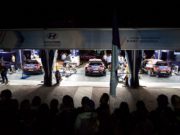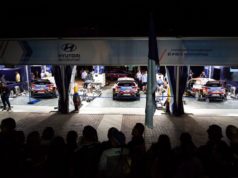The Nissan LEAF has become the first electric car in history to surpass 400,000 sales, solidifying the model’s leading role in the global shift toward more sustainable mobility.
Introduced in 2010 as the world’s first mass-market electric vehicle, the Nissan LEAF has led the way in making the excitement and convenience of electric driving accessible to non-luxury buyers. Less than a decade ago, electric cars were seen as a niche product, and LEAF customers were mostly “early adopters.”
Today, a growing number of consumers say their next car may be electric. Customers are choosing the LEAF for its powerful, agile performance and advanced technologies, such as the ProPILOT semiautonomous driving system1, in addition to the benefits of sustainable mobility.
“This milestone is a powerful statement that 400,000 customers, and counting, value the Nissan LEAF for the excitement, confidence and connection it delivers,” said Executive Vice President Daniele Schillaci, Nissan’s global head of marketing, sales and electric vehicles. “The LEAF remains the icon of Nissan Intelligent Mobility, our strategy for moving more people to a better world.”
Check out Brian Maragno’s top 4 EV driving tips for the new #NissanLEAF PLUS. pic.twitter.com/pLsA4fqbfn
— Nissan Electric (@NissanElectric) March 4, 2019
In launching the first-generation LEAF, Nissan pledged to become a global leader in producing and promoting vehicles with zero tailpipe emissions
The company committed itself to working with governments and utility companies to support the adoption of electric vehicles. It also works towards make charging them easier and more convenient, and develop second-life uses for electric car batteries.
Since then, Nissan has formed partnerships around the world under its Nissan Energy initiative. These partnerships will leverage the ability of electric car batteries to store energy and share it with homes, businesses and power grids – making electric vehicles even more useful, while promoting efficient energy use.
Meanwhile, LEAF owners have driven their cars more than 10 billion kilometers in total. The number of LEAF vehicles sold since 2010 is enough to save 3.8 million barrels of oil a year.2
Last year, the LEAF was not only the best-selling electric vehicle in Europe, but also the top-selling car of any kind in Norway.
The Nissan LEAF is available in more than 50 markets globally
It will go on sale in six new markets in Latin America in the first half of this year. LEAF will be available at seven markets in Asia and Oceania by the end of the year.
The powertrain of the second-generation LEAF3, which debuted in 2017, produces 110 kilowatts of power and 320 Nm of torque. Recently, a model with a new powertrain joined the lineup: the Nissan LEAF e+, which offers increased power and approximately 40% additional range4. Sales of the LEAF e+ began in late January in Japan. U.S. sales will begin this spring, and Europe will follow shortly thereafter.
The Nissan LEAF embodies the three pillars of Nissan Intelligent Mobility – Intelligent Power, Intelligent Drive and Intelligent Integration. The car’s innovative electric powertrains exemplify the first, while ProPILOT, available in many markets, showcases the second. Designed for single-lane driving on the highway, ProPILOT maintains speed and lane position while reducing driver fatigue. ProPILOT Park, available on models in Japan and Europe, accelerates, brakes and steers the car into a parking spot.5
The Nissan LEAF has also opened up a new world of clean energy capabilities that stretch beyond efficient transportation
Nissan Energy is an ecosystem centered on Nissan electric vehicles. It makes them even more useful to customers by leveraging their batteries’ ability to store and share energy. It enables electric vehicle owners to easily connect their cars with energy systems to charge their batteries, power homes and businesses or help balance power grids. As part of Nissan Energy, the company has already started infrastructure pilots in Europe, Japan and the U.S. Meanwhile, future commercial uses are in development.
Nissan Energy also includes new efforts to reuse batteries, a vital step in enhancing the sustainability of electric vehicles. Along with strategic partners, Nissan has taken LEAF batteries and repurposed them for use in off-grid street lighting, power banks for sports complexes, and more.
The Nissan LEAF is built at three factories: Oppama, Japan; Sunderland, England; and Smyrna, Tennessee.





